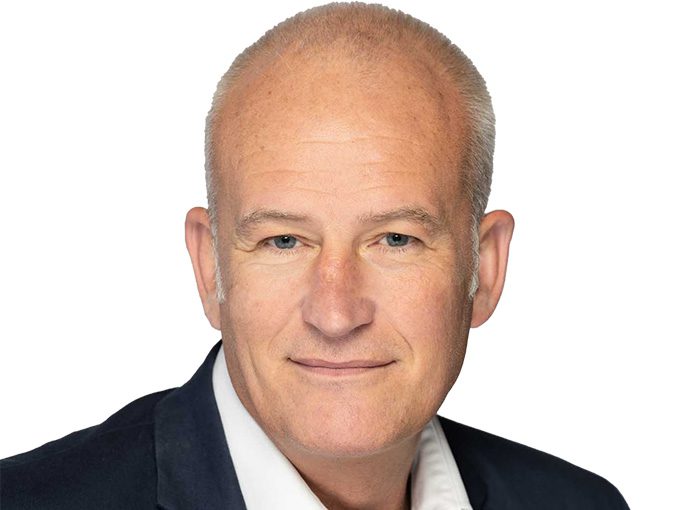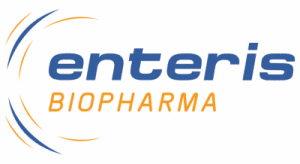
SERB Pharma Inks Licensing Deal with SFJ for Brilinta Reversal Agent
By Mark Terry
May 12, 2023
Philadelphia-based SERB Pharmaceuticals has inked a licensing deal with San Francisco’s SFJ Pharmaceuticals for bentracimab, a reversal agent to AstraZeneca’s Brilinta (ticagrelor). Brilinta is a blood thinner, with a risk of uncontrolled bleeds. Bentracimab is designed as an emergency agent to stop those bleeds.
Anthony Higham, SERB’s CEO and Thomas Kolaras, SERB’s Chief Commercial Officer, US, took time to discuss the deal and the company with BioBuzz.

SERB Pharmaceuticals operates in the U.S. as BTG Pharmaceuticals. Higham notes, “We spun out the biologics element of the business a couple of years ago to SERB, which is partly a European-based organization. We joined it with the BTG specialty pharma business two years ago to create what is essentially a small- to medium-sized global platform. We specialize in critical care of rare diseases.”
A look at the company’s large portfolio of products, it’s notable for the number of antidote products it includes under the Emergency Care segment. This includes B.A.L., to treat arsenic, copper, gold, lead and mercury poisoning, Kaliumjodid SERB, to treat hyperthyroidism, in radiation emergencies, and to protect the thyroid gland against some types of radiopharmaceuticals, Narcan as an antidote to opioid overdose, and CroFab, a rattlesnake antivenom.
In that respect, a licensing deal for bentracimab fits right in. AstraZeneca’s Brilinta is a reversible oral P2Y12 platelet inhibitor. It is used to treat patients who have had a heart attack or stroke, or who have acute coronary syndromes or coronary artery disease (CAD). However, Brilinta can cause cases of serious bleeding, including internal bleeding, that might require blood transfusions or surgery.
Higham said, “We currently have probably the world’s broadest portfolio of antidotes ranging from lead poisoning, heavy metals to snake antivenom to reversal agents for high-dose methotrexate toxicity. It is a very broad asset base, but it is slightly broader than just straight antidotes. We provide some surgical, some collagen, and gentamicin implants. It’s a relatively broad portfolio.”
He goes on to say, “Bentracimab offers us a very good fit for the U.S. market. We have an asset, DigiFab, which is already operating in that cardiovascular space. In terms of the patient journey, we already have a very similar patient referral pathway as we do for DigiFab.”
SFJ is on track to file a Biologics License Application (BLA) with the FDA in the third quarter of this year. “We will be supporting them. With our biologics history, we’re very well-placed to support SFJ. We will then be on point for any post-marketing commitments, and we’ll probably start to build out the assets toward the end of the second half of this year,” Higham said.
Kolaras notes that the entire P2Y12 market is about 4 million patients. “All of these patients are on different anticoagulants that really need reversal agents. The beauty of this is that bentracimab is specifically designed to reverse the effects of ticagrelor. And that is unique within the field and within the patient population. It’s going to be a huge benefit relative to those patients that can be treated on the U.S. side,” Kolaras said.

As such, SERB is gearing up its commercial activities. Currently, it has about 45 people within the U.S. between the home office in Philadelphia and outside in the field that are performing additional work within the company’s current assets.
Kolaras said, “We’re going to expand and that’s looking at manufacturing positions, sales and marketing, commercial operations, and analytics, for example. We’re looking to bring on close to 100 positions to support this particular asset and that tells you about our commitment, how important it is, and what’s going to be required to be competitive within the marketplace.”
They have already begun hiring and expect to continue that through the timeframe of the BLA filing. Kolaras adds, “This will be a product that we’ll definitely need to be able to understand the patient journey, and care pathways within the hospital, and then be prepared to have discussions with payers, if required.”
SFJ has “a very rich history in terms of partnering organizations,” Higham said. “They have development and clinical expertise, so they’re an excellent partner for us to work with as we go forward.”
The drug received Breakthrough Designation from the FDA in 2019, which allows SERB and SFJ to follow Fast Track guidelines. As such, if all goes well with the BLA submission, they could expect an approval early in the third quarter of 2024 with potential commercialization late in the year or early in 2025.
Otherwise, Higham hints at some possible merger-and-acquisition activity in the future, noting, “We have a very active monitoring and assessment of external innovation. We see that as being a core part of our growth going forward if we put tighter boundaries around the therapeutic areas we currently operate in the critical care space and rare diseases.” Tie that in with a strong and growing commercial infrastructure in the U.S., as well as the company’s R&D capabilities within biologics, SERB has “confidence that we can execute late-stage assets equally. We will take established assets already on the market where we could utilize our commercial footprint to commercialize those assets as well.”
In terms of the Philadelphia-based headquarters, Kolaras said, “Talent from around the area is pretty robust. Our name is becoming more prominent within the area, and I think we’re building out more talent and capabilities here in the Philadelphia area. So the expectation is we want people here in the Philly office, that’s the goal. That’s why we’re here. We think it’s an excellent location and we know there’s great talent.”
- About the Author
- Latest Posts
Mark Terry is a freelance writer, editor, novelist and ghostwriter. He holds a degree in microbiology & public health and spent 18 years in infectious disease research and clinical and research genetics prior to his transition to a writing career. His areas of expertise include biotechnology, pharma, clinical diagnostics, and medical practice management. He has written literally thousands of articles, as well as market research reports, white papers, more than 20 books, and many other written materials. He currently lives in Michigan with his family.







